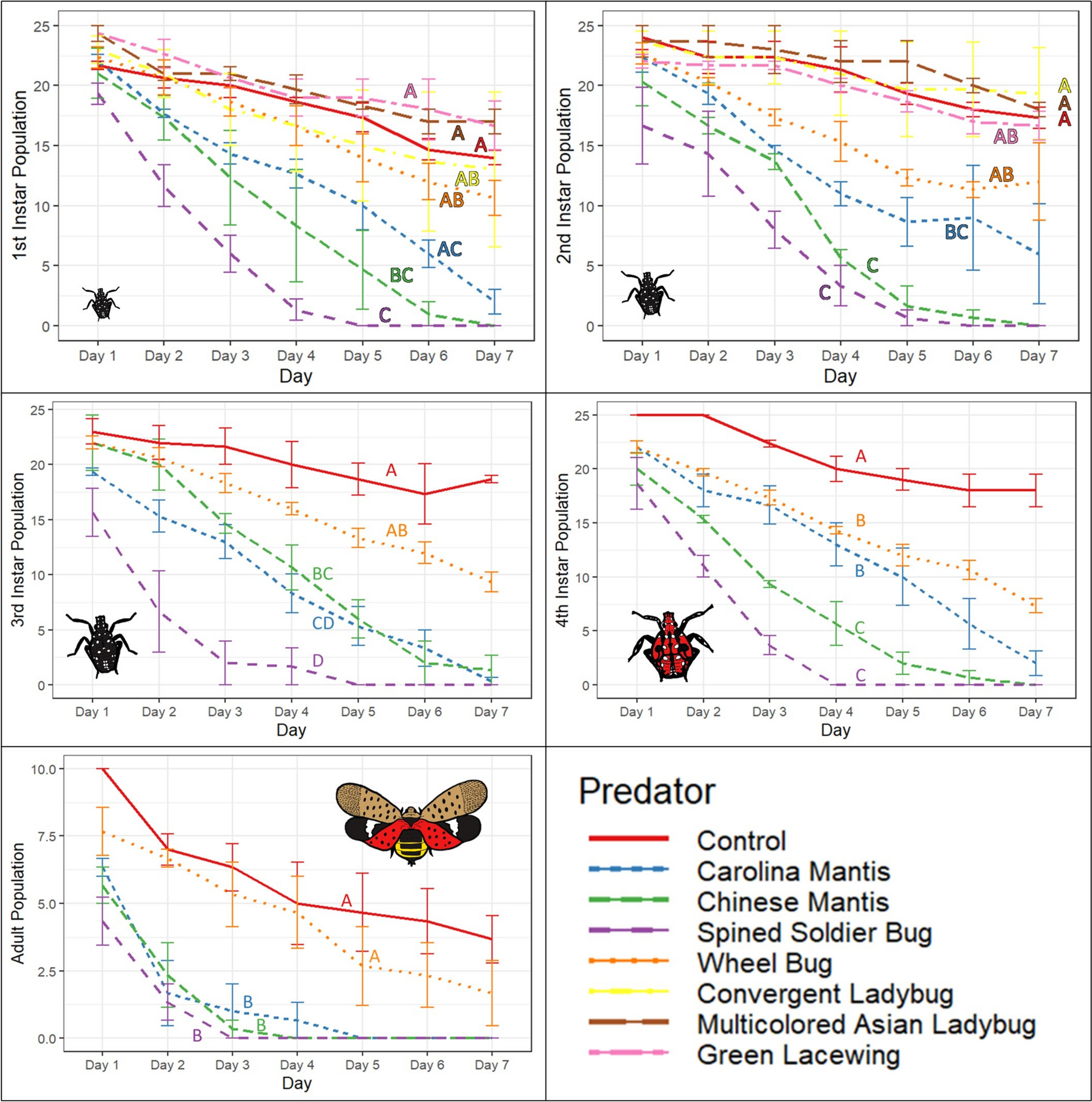2025-03-17 ノースカロライナ州立大学(NC State)
<関連情報>
- https://www.psu.edu/news/agricultural-sciences/story/natural-insect-predators-may-serve-allies-spotted-lanternfly-battle
- https://link.springer.com/article/10.1007/s11829-025-10138-0
北米における一般節足動物捕食者による斑点提灯虫(Lycorma delicatula)の捕食 Predation of spotted lanternfly (Lycorma delicatula) by generalist arthropod predators in North America
Anne E. Johnson,Sara Hermann & Kelli Hoover
Arthropod-Plant Interactions Published:01 March 2025
DOI:https://doi.org/10.1007/s11829-025-10138-0

Abstract
Spotted lanternfly (Lycorma delicatula White, (Hemiptera: Fulgoridae)) is a non-native, invasive pest with a broad host range that has rapidly spread since its discovery in the United States in 2014. Managing emerging invasive pests can be challenging as repeated insecticide inputs can lead to resistance and impact non-target organisms. Alternative strategies, such as biological control, reduce risks but require extensive investigation before implementation. A recent community science study suggests that arthropods are major predators of L. delicatula. However, this pest can sequester toxins from its preferred host, tree of heaven (Ailanthus altissima), which may defend it from predation. Thus, we tested a variety of predatory arthropods against all life stages of L. delicatula to determine if they would avoid prey fed on A. altissima compared to other host plants. Predatory arthropods did not show a preference when given a choice between L. delicatula reared with access to A. altissima compared to those reared on alternative hosts. We then tested 10 commercially available or easily field-collected generalist predators to determine if these potential biological control agents could reduce L. delicatula populations. Spined soldier bugs (Podisus maculiventris (Say, Hemiptera: Pentatomidae)), Carolina mantids (Stagmomantis carolina (Johansson, Mantodea: Mantidae)), and Chinese mantids (Tenodera sinensis (Saussure, Mantodea: Mantidae)) were the most effective at reducing prey populations, indicating they have promise as effective natural control agents. Our results also suggest that conservation and/or augmentation biological control using generalist predators already present in the landscape could be a useful management strategy for L. delicatula.



